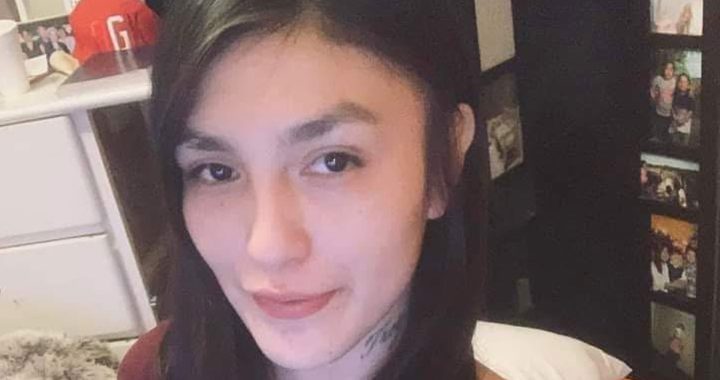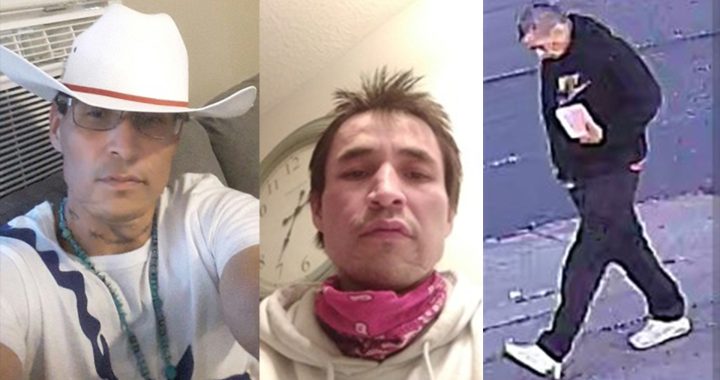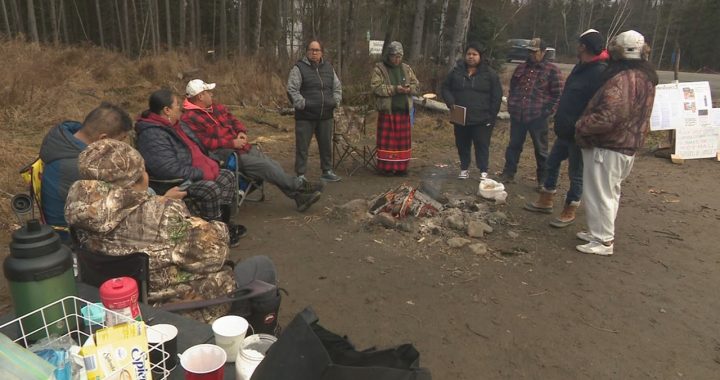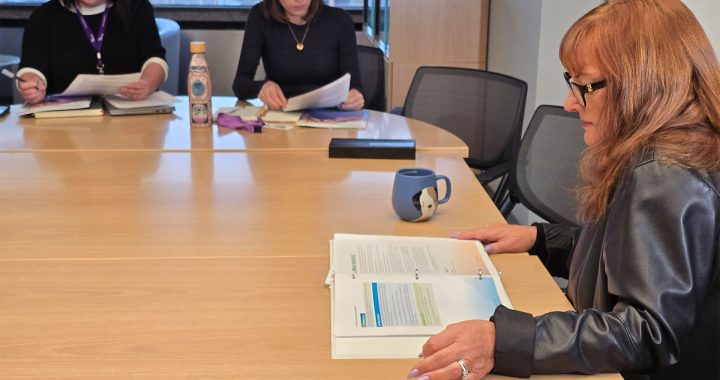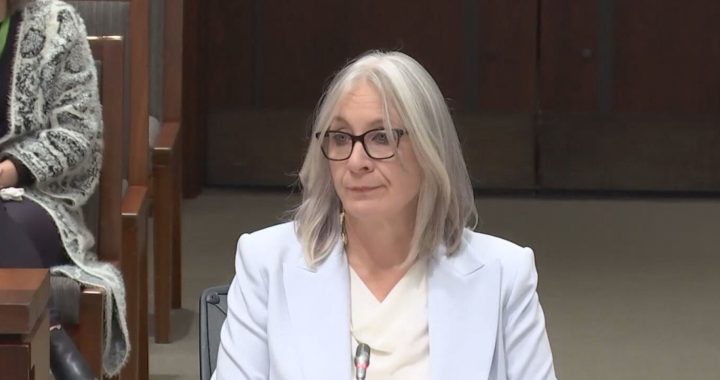
Charman Smith of Yukon is serving a prison sentence in Turkey. Photo: APTN
A Tagish woman is seeking to serve the rest of her Turkish prison sentence for drug trafficking at home in Canada.
Charman Smith, a member of the Carcross/Tagish First Nation in the Yukon, appealed to the Trudeau government Wednesday to bring her home on humanitarian grounds.
In a virtual news conference alongside Congress of Aboriginal Peoples (CAP) national vice-chief Kim Beaudin, Smith fought back tears as she outlined her dire economic and medical concerns.
“I have a (mucous) retention cyst in my brain,” she said in a halting voice, “that could be fatal.”
Beaudin, whose organization represents Métis, status and non-status Indians, and southern Inuit Indigenous people living off-reserve, said the situation was urgent.
“She has a myriad of problems with respect to health and the justice system,” he said. “What we’re trying to do is to get her home.”
Smith, who said she was an unknowing drug mule, was sentenced to nine years and two months in 2016 for trafficking khat.
She said she was unaware the stimulant was in her suitcase when she transferred planes in Turkey from Kenya on her way to Canada.
“I still don’t understand what kind of drugs I was carrying,” she said.
“I was carrying drugs in my luggage and I was in the lineup to get aboard my plane. And they had pulled me out of the lineup. And they held me for five hours at the airport.”
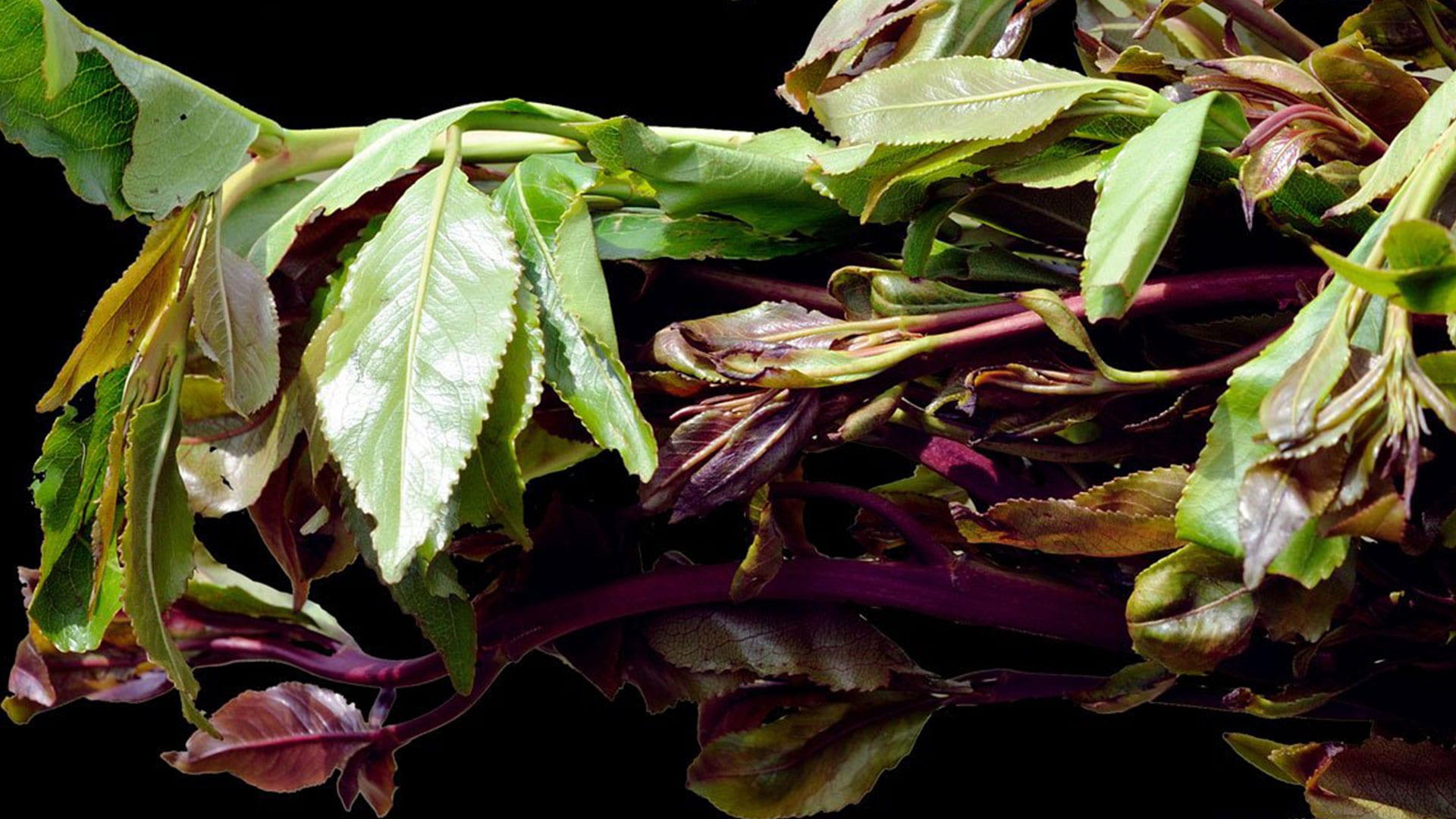
Smith has served five years behind bars but was released in 2020 to a form of house arrest after she said the Turkish government freed a number of female prisoners due to COVID-19 concerns.
She said the Canadian government lent her money to rent a modest apartment, buy food and the medication she needs to treat her epilepsy.
But in May the government stopped sending the $300 per month and asked her to repay the loan.
“I was no longer going to have a place to stay,” she said, her voice breaking. “I was no longer going to have food or my medicine.
“My medication is the most important because I’m an epileptic and if I do not have my medication I can go into multiple seizures.”
Beaudin said CAP sent Smith money to cover her June rent and would be establishing a fundraiser.
He said Canada had a duty to look after a First Nations woman.
“As Indigenous people in Canada, we’re rights holders. We’re a sovereign people. We’re sovereign nations and those should apply no matter where we go.”
Without her medication, Smith said her body can’t warn her about a potentially dangerous seizure coming on.
“When I found out I wasn’t going to be getting anymore help I didn’t know what to do. Like it blows my mind. They said there was nothing more they can do for me.”

Smith said she is unable to work to repay the loan or buy medication because of her prisoner status and lack of legal documentation.
Even her passport has expired, she added, noting authorities at the Turkish women’s prison and Canadian consulate have washed their hands of her.
“It’s really hard because after I received those two messages I had five seizures in less than 24 hours,” she said of the stress the bad news caused.
Further complicating the situation is the recent diagnosis of the cyst, she said.
“I’m a Canadian citizen. I’m supposed to be able to have somebody to turn to for help.”
Beaudin blasted the Canadian government for dropping “the ball on this. They have not even considered a transfer to bring her home,” he said from Ottawa.
“Her band has abandoned her – her First Nations band. The Canadian government consulate in Turkey has abandoned her. They’ve really left her on her own and it’s very disturbing.”
Beaudin said Smith was at risk of becoming homeless in Turkey.
He called on Global Affairs Minister Marc Garneau to exercise Canada’s prisoner transfer agreement with Turkey and bring Smith home.
“It shouldn’t matter whether we, as Indigenous people, are in a foreign country,” Beaudin said. “We still need help if something happens.”
Prisoner transfer
Smith said she applied for the prisoner transfer two years ago and was still waiting. She doesn’t know why the Canadian government eliminated its funding.
Smith noted her First Nation gave her $1,000 US a few years ago and told her not to ask for anymore help.
The band declined to comment Wednesday but said it may have something to say in the future.
Global Affairs said it was aware a Canadian citizen it did not name was on temporary release while serving a sentence in Turkey.
It said its consular officials were providing “ongoing consular assistance to the citizen since their initial detention and throughout their temporary release.”
But it couldn’t say anything more due to privacy regulations.
Beaudin called the whole thing sad.
He said Smith didn’t feel safe in Turkey and was seriously ill.
He said it was wrong for the Trudeau government to commit to protecting Indigenous women at home and neglect them when they’re in trouble abroad.
“They gave her two weeks notice and said, ‘You’re out on the street’,” he said of Canada.
“It’s like Charman doesn’t exist. They’re trying to erase her.”




